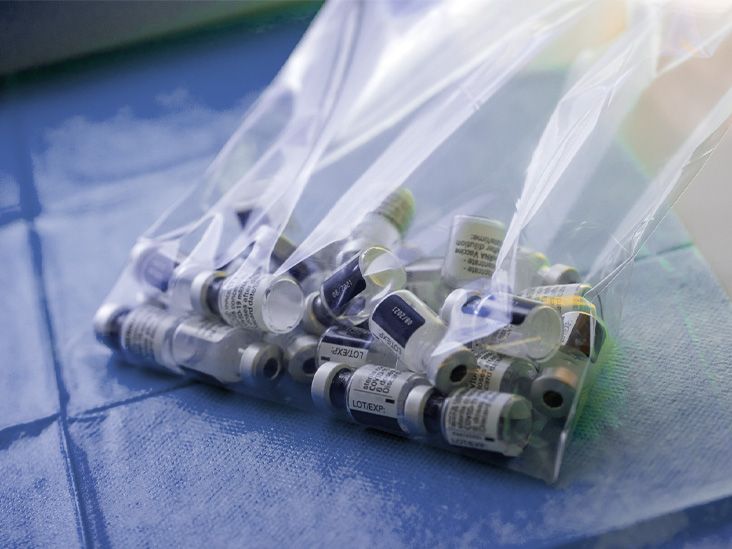Berberine, or berberine hydrochloride, is a compound in several plants. It may help to treat diabetes, high cholesterol, high blood pressure, and more. However, more research is necessary.
Berberine has been a part of Chinese and Ayurvedic medicine for thousands of years. It works in the body in multiple ways and is able to make changes within the body’s cells.
Studies of berberine have indicated that it can treat several metabolic health conditions, including diabetes, obesity, and heart problems. It may also improve gut health.
Although berberine appears safe and causes few side effects, it is a good idea to speak with a doctor before taking it.

Research suggests berberine may benefit the following conditions.
Bacterial infections
Berberine could be an effective antimicrobial agent. A
S. aureus can cause many health problems,
- sepsis
- pneumonia
- meningitis
- certain skin conditions
Another study suggests that berberine may be effective against certain antibiotic-resistant bacteria.
Inflammation
Inflammation is a key factor in various health conditions, including heart disease and diabetes.
Diabetes
Research suggests that berberine may work as a diabetes treatment. For example, a 2019 literature review indicated that berberine was better than a placebo at lowering blood sugar, although factors such as treatment duration affected this.
The same analysis suggests that a combination of berberine and blood-sugar-lowering drugs is more effective than the drugs alone.
A 2021 systematic review highlights strong evidence to support berberine’s use as a supportive therapy in type 2 diabetes management.
The researchers suggest that berberine may help to improve insulin resistance by lowering body mass index (BMI) scores and fasting blood insulin levels.
Berberine appears to activate SIRT1 proteins, which are involved in cellular processes such as metabolism and inflammation, and AMP-activated protein kinase, which can help regulate how the body uses blood sugar.
The review also suggests berberine may help to improve blood lipids, potentially contributing to beneficial effects for people with type 2 diabetes.
However, more research is necessary to understand the full therapeutic potential of berberine for people with diabetes. People should speak with a doctor before taking this supplement, as it may not be suitable for everyone and could interact with other medications.
High cholesterol
High levels of low-density lipoprotein (LDL) cholesterol and triglycerides
A 2021 systematic review highlights research suggesting that berberine may help lower LDL cholesterol and triglyceride levels. It may also help to increase high-density lipoprotein (HDL), or “good” cholesterol.
A 2021 study involving 84 Chinese men gave participants either 500 milligrams (mg) of berberine or a placebo for 12 weeks.
Those who took berberine had more significant reductions in total and LDL cholesterol than those taking the placebo. The researchers also highlighted a slight reduction in HDL cholesterol but suggest this may be a chance occurrence.
High blood pressure
High blood pressure is a risk factor for conditions such as heart disease.
A
A 2021 study outlines previous research suggesting berberine may have a positive effect on blood pressure. However, the study authors found no differences in blood pressure levels between the berberine and placebo groups.
Obesity
A 2021 review suggests that berberine may have antiobesity effects.
Another
- BMI
- body weight
- waist circumference
- C-reactive protein concentrations
A 2020 animal study suggests that berberine may help to act as an appetite suppressant, since it led to a lower food intake in mice and rats.
Polycystic ovary syndrome
Polycystic ovary syndrome (PCOS) occurs when a female has high levels of certain male hormones. The syndrome is a hormonal and metabolic imbalance that can lead to infertility and other health issues.
A 2022 study compared the effects of berberine with the medications metformin (Glucophage) and myoinositol (Inofolic alpha) on people with PCOS.
Berberine caused greater reductions in clinical, hormonal, and lipid parameters than metformin and myoinositol. The authors suggest berberine may be better than metformin at reducing the risk of cardiovascular disease in people with PCOS.
Cancer
A
Another 2021 review suggests that berberine may prevent the spread of cancer cells by controlling the cell cycle and causing cell death.
However, further research is necessary to understand the full therapeutic potential of berberine for cancer.
Gut health
If berberine can help treat cancer, inflammation, diabetes, and other conditions, it may be due to a beneficial effect on gut microbiota, according to research from 2020. Scientists have found links between the gut microbiome — bacteria colonies in the gut — and these conditions.
Berberine has an antibacterial action that seems to remove the harmful bacteria in the gut and thus enhance the growth of healthy bacteria.
While studies in humans and rodents suggest this could be true,
The American Association of Naturopathic Physicians (AANP) notes that berberine supplements are available as powder or capsules.
They add that many studies suggest taking 900 to 1,500 mg per day, but most people take 500 mg three times per day. However, the AANP urges people to speak with a doctor before taking berberine to check its safety and how much they can take.
If a doctor agrees that berberine is safe to use, the AANP also recommends checking the product label for third-party certification, for example, from the National Science Foundation (NSF) or NSF International.
An older
The Food and Drug Administration (FDA) does not regulate supplements. There is no guarantee of the safety or effectiveness of a supplement, and it is not always possible to verify the quality of the product.
Berberine and metformin
However, if a doctor prescribes metformin, people should not take berberine as an alternative without first speaking with their doctor.
A doctor will prescribe the correct amount of metformin for someone based on clinical research. It is not possible to know how a supplement will match that amount.
Berberine may interact with metformin and affect blood sugar levels, making them harder to manage. In one study, taking goldenseal, an extract containing berberine, and metformin together led to a
One day, berberine may become a suitable alternative to metformin for managing blood sugar levels, but more research is necessary.
The
Berberine can cause digestive side effects, such as:
- upset stomach
- constipation
- nausea
- rash
- headache
In animal studies, scientists have noticed the following effects, depending on the type of animal, how much they consumed, and for how long:
- diarrhea
- vomiting
- nausea
- muscle tremor
- gastric ulcers
- liver and kidney enlargement
- a reduction in white blood cells
Precautions to take
It is essential to speak with a doctor before taking berberine or other supplements, as they may not be safe or suitable for everyone. Anyone who develops an allergic reaction to any herbal product should stop using it at once.
Some herbal supplements may contain ingredients that are not on their label, so people should monitor their reaction after first taking them.
The
There may also be a potential for hypoglycemia from taking goldenseal, depending on whether someone is taking other hypoglycemic prescription medications. Goldenseal may also interact with prescription medications.
Some people may use berberine to support weight loss. For example, a 2020 study associated berberine intake with a significant reduction in body weight, BMI, and waist circumference.
According to a 2023 study, berberine has a positive effect on people with kidney problems. It does this by changing the types of friendly bacteria in the gut and stopping the production of bad substances in the gut that can make kidney disease worse.
Berberine does not kill good bacteria. A 2020 study found that while berberine can induce cell death of harmful intestinal bacteria, it also increases the number and species of beneficial bacteria in the gut.
Research suggests that berberine could be a promising therapy for several conditions, including diabetes, heart disease, and obesity. However, more research is necessary to understand its safety and efficacy.
Berberine is a natural remedy that shares properties with some prescription drugs. As such, people should use it with care and speak with a doctor before taking it.







